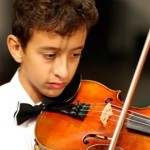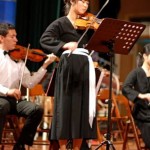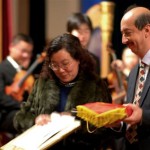Welcome to Theory Lessons with Sasha – where highly qualified and reputable instruction meets a personalized approach.
Our small group setting allows for an intimate learning experience with a maximum of 5 students per class, ensuring individualized attention for each participant.
Sasha’s lessons are not only informative but also inspirational and motivational. With her expertise and passion for teaching, students can expect to delve deep into the subject matter while being uplifted and inspired to reach their full potential.
Whether you’re a beginner eager to grasp the fundamentals or an advanced learner striving for mastery, Sasha’s tailored approach will meet your specific needs and goals.
Join us for an enriching journey of musical discovery and growth. Embrace the opportunity to learn from a dedicated professional who is committed to your success.
Overall, Alexander’s music theory classes at Tagiev Music are an excellent opportunity for anyone who wishes to gain a solid understanding of the subject and be inspired by a passionate and knowledgeable teacher.
For more information or to reserve your spot, please contact emin@tagievmusic.com
Let’s embark on this musical journey together!
Learning music theory has several benefits for musicians, regardless of their level of expertise. Here are some of the key advantages:
1. Understanding musical concepts: Music theory provides a framework for understanding the elements of music, such as rhythm, melody, harmony, and form. It helps musicians analyze and interpret music, making it easier to learn and perform new pieces.
2. Improved sight-reading skills: Music theory helps musicians read and interpret sheet music more efficiently. It enhances their ability to recognize patterns, intervals, and chord progressions, enabling them to sight-read music with greater accuracy and speed.
3. Enhanced composition and improvisation skills: A solid understanding of music theory provides a foundation for composing and improvising music. It gives musicians a deeper understanding of chord progressions, scales, and musical structures, allowing them to create original music and improvise solos more confidently.
4. Effective communication with other musicians: Music theory serves as a common language among musicians. When musicians understand and can communicate musical concepts using standardized terminology, it becomes easier to collaborate, rehearse, and perform with others.
5. Expanded musical repertoire: Learning music theory broadens a musician’s repertoire by enabling them to explore and appreciate different musical styles and genres. It provides the knowledge and tools to analyze and appreciate a wide range of music, from classical to jazz to contemporary styles.
6. Improved memorization and memorization techniques: Music theory helps musicians understand the underlying structure of a piece, making it easier to memorize music. By recognizing patterns, chord progressions, and harmonic relationships, musicians can more effectively commit music to memory and recall it during performances.
7. Better musical analysis and interpretation: Music theory allows musicians to analyze and interpret music more deeply. It helps them identify key signatures, understand modulation and harmonic progressions, and recognize formal structures. This understanding enhances musical interpretation and expression.
8. Enhanced problem-solving skills: Studying music theory requires critical thinking and problem-solving skills. Musicians must analyze and solve musical puzzles, such as deciphering complex rhythms or harmonies. This process strengthens analytical thinking and fosters creative problem-solving abilities.
9. Greater musical independence: Music theory equips musicians with the knowledge and tools to learn and practice music independently. It provides a roadmap for self-study and guides musicians in analyzing and understanding music without the need for constant guidance or instruction.
10. Deeper appreciation and enjoyment of music: Music theory deepens a musician’s understanding and appreciation of music. By recognizing the underlying structures and techniques used in music, musicians gain a richer understanding of





